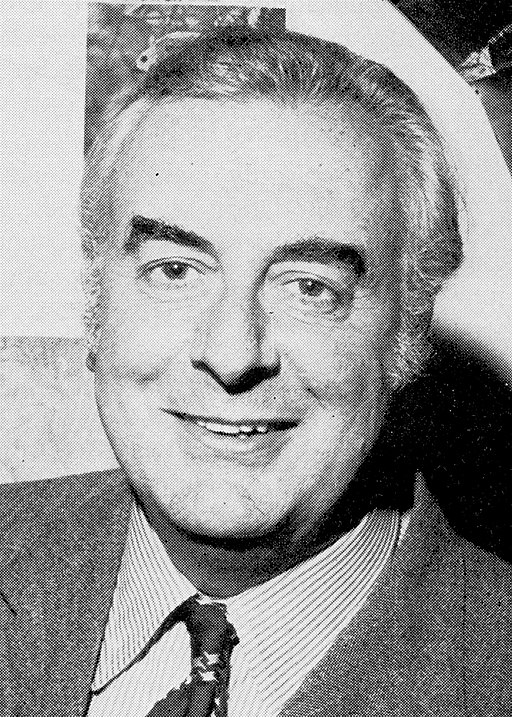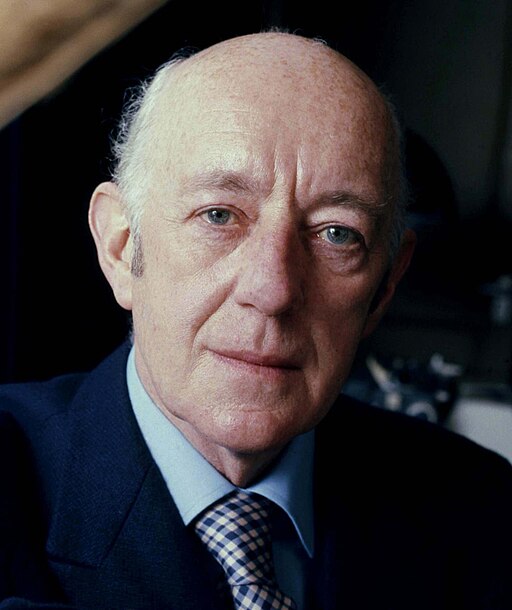Here’s to Weary Dunlop, a true Australian hero

Hello all -
Happy Sunday!
There’s little more exciting than uncovering the life of a true hero, and one that has remained seemingly unknown and uncelebrated - at least in my neck of the woods in the UK. I am sure down under my Australian friends would recoil that I had never heard of this particular true Australian hero - Weary Dunlop.
Colonel Sir Ernest Edward "Weary" Dunlop was born this week on 12 July 1907, in Wangaratta, Victoria, Australia. Although Victoria was - and still is - primarily an Aussie Rules Football state, Weary became the first Victorian to play for the Wallabies (the Australian rugby union team) in 1932 at the Sydney Cricket Ground, having only started playing the code a year earlier.
But it was in the arena of war that Dunlop left an indelible impression on the Australian psyche. As a senior medical officer in the Australian Army Medical Corps in 1942, he was captured by the Japanese and sent to the infamous Burma-Thailand Railway.
Conditions for prisoners on the ‘Death Railway’ were notoriously brutal. Prisoners of War (POWs) endured beatings, torture, malnutrition and disease. Over 2,500 Australians perished on the railway between 1942-1945, a number that may have been much higher without the presence of Weary Dunlop.
As well as meticulously tending to his sick and dying men throughout, he would fearlessly stand up to his Japanese captors, endangering his own life to negotiate better rations and conditions for his men. It was reported that on one occasion, he refused an opportunity to escape in favour of remaining with his patients. His presence provided a much-needed morale boost to the men in captivity with him.
In later life, in addition to continuing a career as a surgeon, Weary fought endlessly for the welfare and rights of former POWs. He also revisited the Burma-Thailand Railway on several occasions to help promote reconciliation with Japan after the war.
Rexness, CC BY-SA 2.0
Weary was awarded the Order of the British Empire (OBE) in 1947 and knighted in 1969, but his credentials as an Australian hero were formalised in 1976 when he was named Australian of the Year.
Sir Ernest Edward Dunlop died in 1993 and received a full State funeral at St. Paul’s Cathedral in Melbourne on what would have been his 86th birthday, 12 July 1993.
He is remembered down under today through statues in Canberra and Victoria and through the Sir Edward ‘Weary’ Dunlop Medical Research Foundation, amongst others. From now on, each year I shall toast this true Australian hero.
By the way, if you were wondering about the nickname “Weary”, well it was because he was “tired”... like a Dunlop tyre!
Podcast episode... a look back
Episode 22. Gough Whitlam Was Out To Lunch

Another great Australian, Edward Gough Whitlam, was born on 11 July 1916 and became Australia’s 21st Prime Minister between 1972 and 1975. He was a respected parliamentarian but would be remembered for the method of his dismissal from office as a result of the most bizarre sequence of events that can ever have befallen any democratic holder of office in the free world. The drama is known today as the 1975 Australian Constitutional Crisis.
I was lucky enough to track down Australian historian Barry York, who talked me through this extraordinary story - check out Episode 22. Gough Whitlam Was Out To Lunch.
Listen now on Apple Podcasts, Spotify, Overcast, Pocket Casts, Amazon Music or just about any other podcast player of your choice. Check out the show notes for the links and transcript to learn more.
My favourite quotes from the episode...
Australia was - and is - a constitutional monarchy with republicanism bubbling just under the surface. The Governor General, the representative of the Queen in Australia, had removed a sitting Prime Minister. Ouch. This was the first and probably last time that this would ever happen.
What happened next is total comedy caper. Remarkably what Whitlam did after being told he was dismissed… he went for lunch.
By the way...
In the UK, we’re all breathing a sigh of relief as the six weeks of door-knocking, cajoling, leaflet-dropping, hustings, speeches and hand-shaking have come to an end in the UK parliamentary elections.
I mentioned a few weeks ago that a previous guest, Edward Morello, was again running for the UK Parliament, having failed to get elected in 2019, and would spend the following six weeks canvassing tirelessly. I spoke to Edward in Episode 6 about his hilarious experiences running for parliament. By the way, he chose the title — How to Lose Friends and Alienate People!
Well, I am delighted to confirm that last week Edward succeeded in his quest in the UK parliamentary elections at his second attempt and is now officially a Member of Parliament for the constituency of West Dorset.
MANY CONGRATULATIONS, EDWARD!
Dates with History…
On Thursday…
Thursday marks World Population Day, born out of Five Billion Day back on 11 July 1987 when, not surprisingly, the world’s population passed 5 billion inhabitants. The United Nations recognises this day to raise awareness of the issues of our rapidly growing population.
I checked out other related milestones, which were a little staggering: The global population reached 1 billion in 1804, around the time the first steam locomotive ran in Wales, Thomas Jefferson was President of the United States and Napoleon was proclaiming himself as Emperor of France.
The Industrial Revolution significantly turned up the dial from that point. If I ignore the fact that homo sapiens emerged around 250,000 years ago and consider their first known move out of Africa as a starting point, then it took 71,804 years to reach that 1 billion landmark (with a touch of poetic licence).
It then took just 123 years to reach 2 billion and 33 years to reach 3 billion. From that point in 1960, the world has added 1 billion people to its population on average every 12 years!
Slightly worrying. The world’s population passed 8 billion in 2022. Food for thought.
Also….
The first Wimbledon tennis championships opened on 9 July 1877. The only famous tennis player I can think of who came out on my home turf was Virginia Wade, who won the women’s Wimbledon title in 1977 (I remember it well). Virginia was born in Bournemouth this week on 10 July 1945.
And finally...
Queen Victoria was the first monarch to live at Buckingham Palace and moved in on 13 July 1837. Buck House opens to the public this year on 11 July.
Question of the week...
The Bridge on the River Kwai is a 1957 epic war film set during World War II depicting the construction of a railway bridge over the River Kwai by British prisoners of war for their Japanese captors, actually situated in Thailand on the Myanmar (ex Burma) border. Weary Dunlop actually watched the film but was critical of its failure to capture the true horror of real POWs’ experiences.
Who played the leading part of Colonel Nicholson in the film?
(answer at bottom of newsletter)
And finally…
Around this time in the UK, university students are receiving their final exam results and preparing to launch their careers. At this stressful time, a little humour…..
IF YOU DON'T ASK, YOU DON'T GET
A business graduate was attending an interview for his first job. The interviewer asked him what salary he was expecting.
The business graduate said, “somewhere around the £150,000 mark, depending on benefits.”
The interviewer replied, “we would also offer you a £20,000 golden handshake, a brand new company Mercedes, full pension, 32 days holiday per year, premium medical cover and annual use of the company ski chalet.”
The business graduate’s eyes widened and said: “Are you kidding?”
The interviewer responded, “yes, but you started it.”
Spread the word...
If you've enjoyed this newsletter, please help me spread the word by forwarding it to a friend.
If you have received this newsletter from a friend and would like to receive your own weekly copy of The Breezer, then feel free to sign up here.
Thank you for joining me. Have a great week!
Steve
HOST & CHIEF STORY HUNTER
P:S: Incidentally, I am always keen to receive your feedback to help me continuously improve this newsletter and the podcast. Just hit reply to this email and...... let it rip! I respond to every email that I receive.
Answer to Question of the week:
Sir Alec Guinness, one of the 20th century's most respected actors who died in 2000.
On 13 July 1953 the internationally recognised Stratford Festival of Canada opened for the first time. Sir Alec Guinness spoke the first lines of their first ever play on that day:
"Now is the winter of our discontent made glorious summer by this sun of York”.
from Richard III, William Shakespeare.

NEXT WEEK'S BREEZER
From election to ejection - some politicians barely warmed their seats
LAST WEEK'S BREEZER
Marie Curie and I are practically related
ATTRIBUTION: Cover image: http://hellfire-pass.commemoration.gov.au/surviving-the-camps/weary-dunlop.php, CC BY-SA 4.0, via Wikimedia Commons
THIS NEWSLETTER IS PUBLISHED ON THE BATTING THE BREEZE WEBSITE WITH A 2-WEEK DELAY. TO RECEIVE YOUR PERSONAL NEWSLETTER ON THE DAY, WHY NOT SIGN UP NOW. THANK YOU.
You can listen to the Batting the Breeze podcast on Apple Podcasts, Spotify, Overcast, Pocket Casts, Amazon Music or any other podcast player of your choice. See podcast player links at the top of this page.
Copyright © 2024 Logical Business Ltd. All rights reserved.









